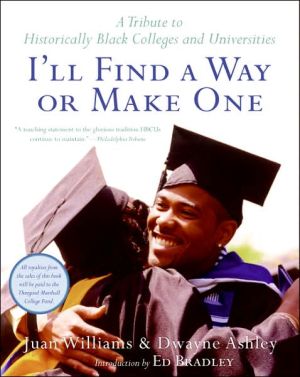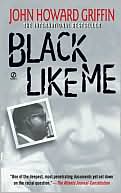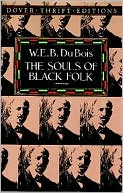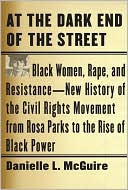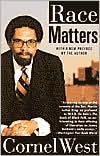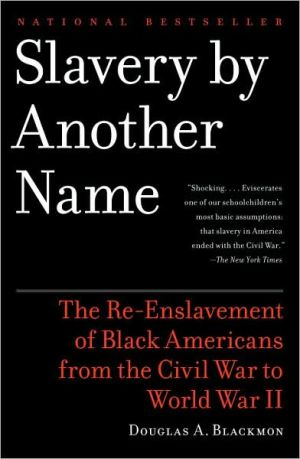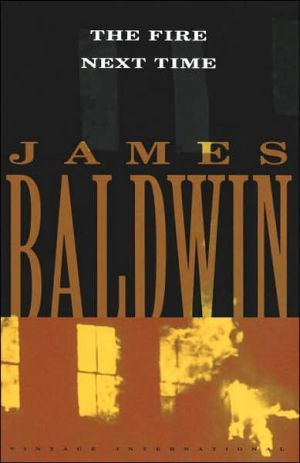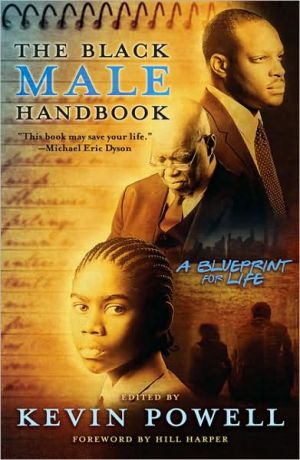I'll Find a Way or Make One: A Tribute to Historically Black Colleges and Universities
A comprehensive and definitive guide to America's 107 historically black colleges and universities, this commemorative gift book explores the historical, social, and cultural importance of the nation's HBCUs and celebrates their rich legacy.\ Included in this one-of-a-kind collection are:\ \ Detailed profiles of each HBCU\ Illuminating portraits of distinguished HBCU graduates such as Leontyne Price, Thurgood Marshall, Spike Lee, and Oprah Winfrey\ Little-known anecdotes about pre-Civil War...
Search in google:
From Juan Williams, author of Eyes on the Prize, comes a must-have definitive reference and gift book that explores the historical, social and cultural importance of America's 108 Historically Black Colleges and Universities (HBCUs) through personal interviews, historical narrative, photographs, and comprehensive reference material.I'll Find a Way or Make One is a groundbreaking reading book featuring 200 black & white photographs. It explores the dramatic development and history of America's 108 Historically Black Colleges and Universities (HBCUs) through photos, historical memoir, anecdotal information, archival and contemporary materials, and personal interviews. Stories abound about the abolishment of slavery. However, lesser known are the efforts--both prior to and after the Civil War--of African-American and white abolitionists banding together to formerly educate newly freed slaves. In 1861, the 28 known Black graduates went to the island of Port Royal, South Carolina, to take part in this educational experiment. The 18-month program and subsequent article that ran in Atlanta Monthly were instrumental in the government's commitment to educate Blacks after the war. Through the government, tireless work of Black churches, White missionary organizations and philanthropists, HBCUs were established. The tales of how these schools were created and the individuals who are linked to their histories are rich and often controversial These tales are the crux of I'll Find a Way or Make One. HBCUs have come to be known as the backbone of America's Black middle class. Most importantly, I'll Find a Way or Make One reveals how the social and cultural atmosphere fostered at these institutions ultimately played a major role in shaping African Americana.Publishers WeeklyFor those who would question the continued need for historically black colleges and universities (HBCUs) in a "post-civil rights era," Williams (Eyes on the Prize), a senior correspondent for NPR, and Ashley, president of the Thurgood Marshall Scholarship Fund, offer this celebration of those institutions. Beginning with a look at newly freed African-Americans' yearnings for education and the Freedman's Bureau's early attempts to gauge the need (and support) for black schools, the authors move forward to profile the 100-plus HBCUs operating today. They highlight the many HBCU students who rose to prominence, from the Harlem Renaissance's brilliant Langston Hughes and Zora Neale Hurston to the present day's media superstars Oprah Winfrey and Ed Bradley, filmmaker Spike Lee and political leaders David Dinkins and Vernon Jordan. They argue that HBCUs "were often hubs for African American communities, with black-owned businesses springing up to serve the students... [and staff] making their homes around the schools" and suggest that "HBCUs are the heart of black political thinking, art, and culture." Filled with history and anecdote, this volume offers a walk through the past and a peek at the future of America through the gift of HBCUs and their graduates. Photos. (Nov.) FYI: Royalties from the sale of this volume will go to the Thurgood Marshall Scholarship Fund. Copyright 2004 Reed Business Information.
I'll Find a Way or Make One\ A Tribute to Historically Black Colleges and Universities \ Chapter One\ Shackled Minds\ The citizenship status of African Americans in the American colonies was loosely defined during the country's infancy. In colonial America, there were free blacks as well as enslaved blacks. But as the colonies began to rely on a slave labor economy, education of blacks was restricted, and even outlawed.\ Historically black colleges and universities (HBCUs) and their graduates and educators have played an essential role in defining the cultural and political atmosphere of this country and the world. Schools like Morehouse, Howard University, Tennessee State University, and Lincoln University (Pennsylvania) educated people who defined genius: actor Samuel L. Jackson, author Toni Morrison, media personality Oprah Winfrey, and Kwame Nkrumah, the first democratically elected president of present-day Ghana. HBCUs count Nobel Prize winner Martin Luther King Jr.; the first black Rhodes scholar, Alain Locke; the first African American Supreme Court justice, Thurgood Marshall; the first African American billionaire, Reginald Lewis; Detroit mayor Kwame Kilpatrick; gospel singer Yolanda Adams; actress Lynn Whitfield; recording artist Sean "P Diddy" Combs; and media mogul Keith Clinkscales among their alumni and faculty.\ More than 167 years after the founding of this country's first HBCU (Pennsylvania's Cheyney University in 1837) and fifty years since the Supreme Court's landmark school desegregation ruling, Brown v. Board of Education of Topeka, Kansas, HBCUs still graduate 70 percent of all black physicians anddentists and half of all black engineers in the United States. Tuskegee University alone produces 80 percent of the African Americans practicing veterinary medicine, while Florida A&M University has outranked Harvard in the number of National Achievement scholars among top black high school students that it has recruited and enrolled. And while only 20 percent of college-bound African American students initially choose to attend HBCUs, nearly one-third of the bachelor's degrees awarded to black graduates come from traditionally black schools. In addition, a number of HBCUs have integrated over the past two decades, expanding their immediate influence beyond the black community. These facts alone reveal the importance of black colleges. Even more compelling, however, is the indispensable role the HBCUs played in the creation of the U.S. public education system and its massive network of institutions of higher learning.\ W. E. B. DuBois once wrote, "Public education for all at public expense was, in the South, a Negro idea." His statement is a direct reference to the fact that, following the end of slavery, it was African Americans who, more than any other group, saw education as the great social equalizer. And it was African Americans who pushed for a truly universal system of government-supported education. Prior to the Civil War, education was a privilege afforded mostly to wealthy and middle-class white men. The vast majority of poor white Americans were illiterate, and teaching that population to read was not a priority of the government, especially in the southern states. A survey of army troops in French-controlled New Orleans in the early 1700s found that 60 percent of soldiers were illiterate. It was only when the desire for literacy among newly freed blacks became an urgent, insistent demand that the public school gospel of northern reformer Horace Mann took hold in the South. If blacks were going to be educated, so too were poor whites.\ From the outset, black schools were designed to offer more than basic literacy and math skills; most also provided training in social and trade skills. The educators and abolitionists who designed these schools determined early on that there was a need to create black institutions of higher learning because southern whites -- and to a large degree northern whites -- did not want black people in their schools. They wanted to maintain separate, race-based societies and U.S. law allowed this racial segregation. This meant blacks would not be accepted into most universities even if they qualified. The move to establish black colleges immediately after the Civil War highlights the significant role that advanced education was beginning to play in American society.\ HBCU Grads Have Become MEDIA Superstars\ Some of the most popular media personalities in television and radio today are the products of HBCUs. Far from being here today, gone tomorrow novelties, Ed Bradley, Tom Joyner, Oprah Winfrey, and Ananda Lewis have established themselves as not only commercially viable, but also politically astute, and even trendsetting and cool. Interestingly, only one of this distinguished group majored in journalism or communications while in college.\ Ed Bradley, a graduate of Cheyney, was an education major who didn't consider a career in broadcasting until Philadelphia WDAS radio personality Georgie Woods visited the teacher's college to talk to students about strategies for reaching youth. Bradley developed a relationship with Woods and the popular DJ invited Bradley to tour the radio station. Although his interest was piqued, Bradley continued on his original career path and took a teaching position after graduating in 1964. A teacher by day, Bradley would go to WDAS and volunteer at night. Del Sheilds, another DJ at the jazz-formatted station, encouraged Bradley to focus on news since that was where the opportunities were. When the riots of 1965 broke out in Philadelphia, Bradley covered the events by calling in stories from pay phones. Impressed by Bradley's work ethic, the station put him on the payroll. Balancing teaching and radio soon became too cumbersome so Bradley started applying for broadcasting positions, landing employment at WCBS radio in New York. When Bradley was hired he was the only black person on the air in the New York radio market.Ed Bradley has remained a part of the CBS news team where he has garnered numerous awards on the popular 60 Minutes news magazine television show.\ Tom Joyner's ascent to radio superstardom was as unorthodox as Bradley's. Joyner, a third-generation HBCU graduate, claims to have black college in his blood. His grandfathers attended Tuskegee and Meharry; his mother and father attended Tennessee State and Florida A&M, respectively ...\ I'll Find a Way or Make One\ A Tribute to Historically Black Colleges and Universities. Copyright © by Dwayne Ashley. Reprinted by permission of HarperCollins Publishers, Inc. All rights reserved. Available now wherever books are sold.
ForewordIntroduction1Shackled minds12Books before freedom313Yearning and learning514Voices of a people1015The art of culture1376Season of threat1977Manifest destiny2258An education in protest2419Calming the storm, healing the cut26510New day, new challenges, new hope291AppProfiles of historically black colleges and universities309
\ Booklist"An important resource."\ \ \ \ \ Philadelphia Tribune"A touching statement to the glorious tradition HBCUs continue to maintain."\ \ \ Cincinnati Herald"A fascinating work of great scope and great detail."\ \ \ \ \ BookPage"An authoritative survey."\ \ \ \ \ Booklist“An important resource.”\ \ \ \ \ BookPage“An authoritative survey.”\ \ \ \ \ Philadelphia Tribune“A touching statement to the glorious tradition HBCUs continue to maintain.”\ \ \ \ \ Cincinnati Herald“A fascinating work of great scope and great detail.”\ \
